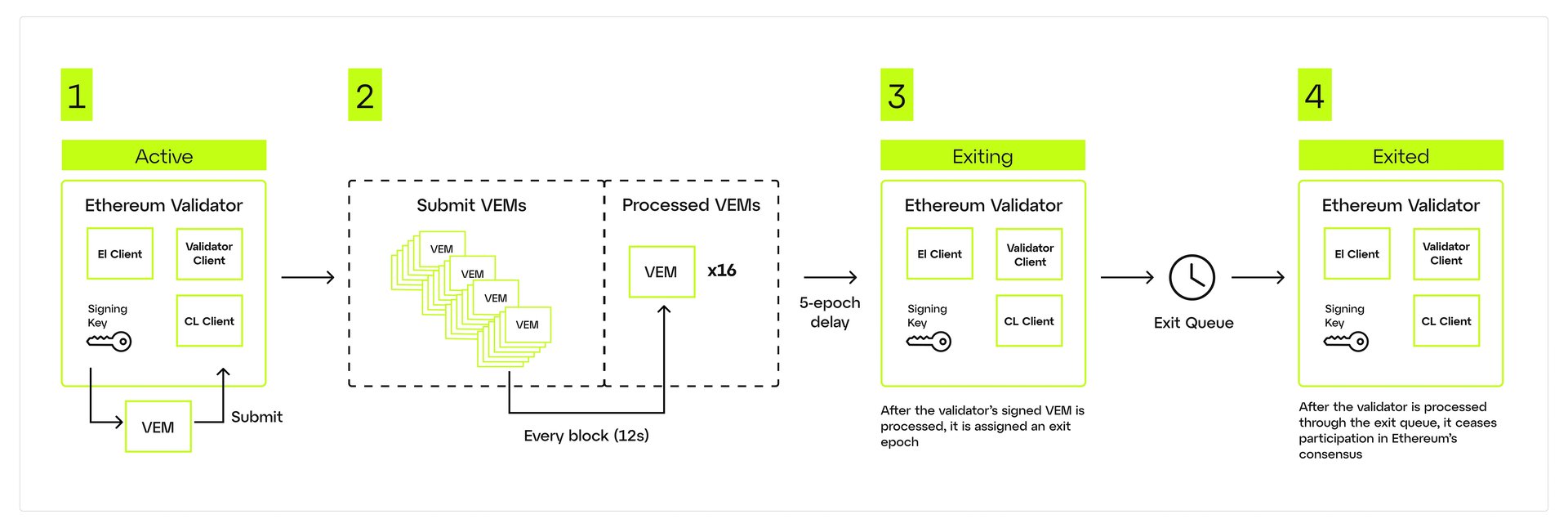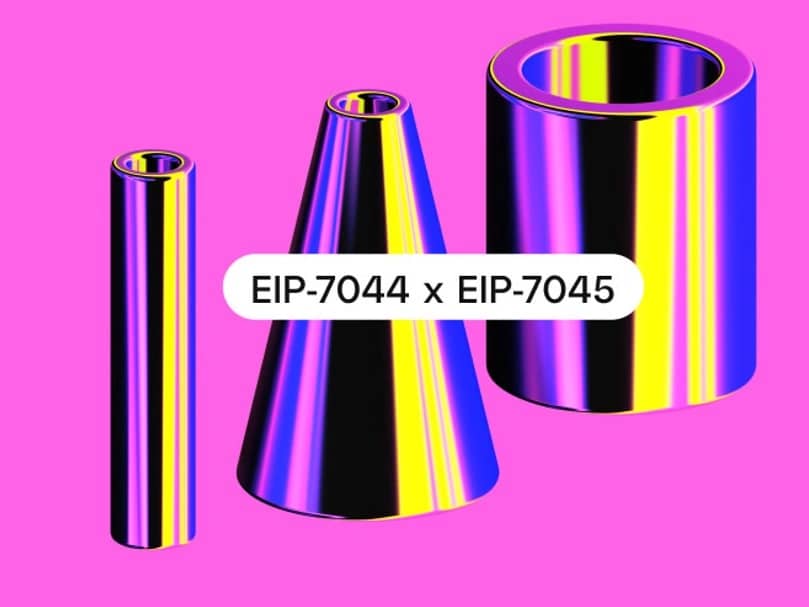Subscribe to wiki
Share wiki
Bookmark
EIP-7044
The Agent Tokenization Platform (ATP):Build autonomous agents with the Agent Development Kit (ADK)
0%
EIP-7044
EIP-7044 is an Ethereum Improvement Proposal that aims to improve the staking use experience by making voluntary exits more flexible. EIP-7044 simplifies withdrawal from staking by generating pre-signed withdrawal notifications at the time of contract initiation. EIP-7044 allows ETH stakers to unilaterally submit their voluntary exit to an Ethereum consensus client at any time, providing more control and flexibility in their staking operations.[2]
Overview
EIP-7044 is part of the Ethereum Dencun Upgrade and ensures that the withdrawal terms are not affected by any actions of the validators or subsequent network updates. EIP-7044 also makes signed voluntary exit messages from validators perpetually valid, rather than being valid only for two upgrades.[1][2]
Currently, signed voluntary exits are only valid for up to two upgrades for block inclusion because the beacon chain state only considers the current and previous fork versions. This limitation increases the complexity of some staking operations, specifically those in which the staking operator (holder of the active key) is distinct from the owner of the funds (holder of the withdrawal credential). This means that the pre-signed Voluntary Exit Message (VEM) must be exchanged on an ongoing basis and ahead of a second upgrade. Otherwise, the custodian (staking service provider) does not anymore control the staked assets and the services would qualify as deposits under the Banking Act.[4]
Validator Exit Process
Generally, delegated staking arrangements involve two parties.
- The ETH staker, who owns 32 ETH (or some multiple of 32 ETH) that they’d like to stake and,
- The validator operator, who manages the technical and operational complexities of running an Ethereum validator on behalf of the ETH staker.
In the delegated staking setup, a complication arises when the ETH stakers decide they would like to exit their validator and withdraw their original 32 ETH deposit and accrued staking rewards. For context, exiting an Ethereum validator requires that a so-called “voluntary exit message” (VEM) or “voluntary exit operation” is signed with the validator’s signing key and submitted for processing on the Beacon Chain by a consensus layer (CL) client.

EIP-7044 aims to make voluntary exits perpetually valid, which will improve the user experience for ETH stakers by allowing them to exit the network independently of their validators at any time without having to rely on operators to enforce their requests.[1][3]
This enhancement through EIP-7044 improves network decentralization and reduces downtime penalties when validators are offline, as automated solutions could handle voluntary exits from the Ethereum consensus layer.[3]
Authors
- Lion
See something wrong?
The Agent Tokenization Platform (ATP):Build autonomous agents with the Agent Development Kit (ADK)
